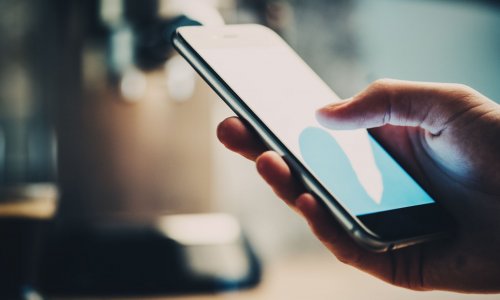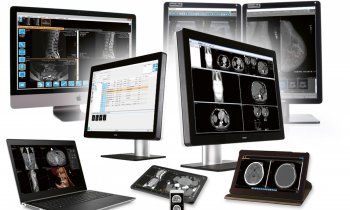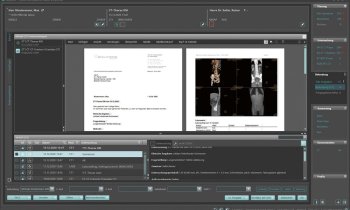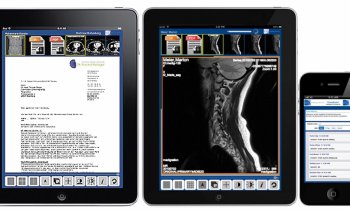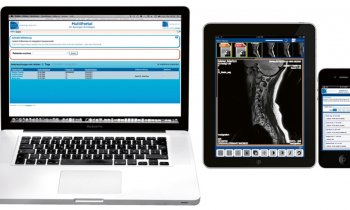Image source: Unsplash/Martin Sanchez
Article • Virology
Digital epidemiology in the Covid-19 war
Digital epidemiology is on the frontline in the Covid-19 war, with innovative techniques used to observe and monitor this viral spread across populations.
Its increasingly important role was outlined to a virtual session at Medica 2020 by theoretical biologist Professor Dirk Brockmann. In a keynote presentation ‘Perspective of digital epidemiology – opportunities, promises and challenges’, he outlined activities and innovations in this field in the context of the first and second waves of the Covid-19 pandemic.

Epidemiologists constantly strive to identify disease dynamics and the medical, clinical and epidemiological aspects as well as the impact on human psychological processes, including how people perceive risk. ‘With traditional epidemiology,’ he explained, ‘psychological and behavioural processes are hard to measure, so people have to make assumptions and it’s hard to get a handle how, for example, our contact networks are structured. This is where digital epidemiology comes in to learn more about our behaviour.’
Smartphones are a critical tool and have the ability to collect crucial data and trace movements through cities and countries, Brockmann pointed out. ‘Almost everyone has one and is generating data, which is important for improving computation that tells us how disease is spread across the population. But that’s just one aspect – there’s a lot more to digital epidemiology than this.’
Real time global surveillance systems with people entering and sequencing technology in which virologists, epidemiologists, molecular biologists can sequence samples and illustrate how they evolve also have a role. While track and trace apps have been developed to track the viral spread, Brockmann outlined an undertaking – inspired by a USA team – where his research group recruited more than half a million people across Germany to the ‘Corona data donation project’[Article in German].
Via an app, where users enter a baseline resting heart rate, this collected heart rate and step count data. Rising heart rate and falling step count could be a marker of whether an individual was developing a fever – a recognised symptom of Covid-19. Aggregated over half a million donors, this could be a signal of coronavirus, Brockmann said.
Recommended article
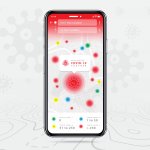
Article • Digital health approaches
The struggle to create COVID-19 contact-tracing apps
While scientists recently confirmed the crucial role contact-tracing apps play in containing the COVID-19 pandemic, politicians are exploring which app architecture offers better privacy protection. However, there is no doubt that in Western countries such an entirely voluntary app can only be successful if the population at large supports it.
Other interesting patterns also emerged from the baseline data, such as populations in some regions of Germany having a significantly higher resting heart rate, with a clear east-west difference and also a difference between rural and urban areas. ‘What we really wanted to show is how we can detect fever in the population and whether this would be a predictor of the case count reported,’ Brockmann explained. What transpired was that the team’s fever detection curve preceded the case count curve by a few days, meaning it could be used as an ‘early warning signal’ and a fever monitor for the nation and federal and regional, authorities in Germany.
It’s very important to epidemiologists to understand these patterns in order to understand disease dynamics in these structures
Dirk Brockmann
Brockmann also referred to another project from a few years ago, where 1,000 mobile phones were given to students on a university campus to monitor movements and networks, long before the principle was applied to technology to track Covid-19 spread. ‘It’s very important to epidemiologists to understand these patterns in order to understand disease dynamics in these structures,’ Brockmann underlined. ‘One of the things we did is run virtual epidemics on these phones. By doing this, you can learn a lot about what superspreading events are and what fluctuations dominate the dynamics. This would not have been feasible a couple of years ago.’
More recently within the field of digital epidemiology, cell phone data was collected on a daily basis to monitor population movements across Germany before, and during, the phases of pandemic lockdowns. ‘After the first lockdown, this slowly moved back to normal by June and now we are doing this for the second lockdown. It’s informing policymakers whether lockdown works and how people have changed their behaviour.’
Digital epidemiology, Brockman underlined, is an important and growing field of research, sitting ‘at the interface of computer science and epidemiology’. (MN)
Profile:
Professor Dirk Brockmann holds a joint position in Institute of Epidemiological Modelling of Infectious Diseases in the Department of Biology at Humboldt University of Berlin and the Robert Koch-Institute, where he is Professor of Theoretical Biology. His research covers computational social science, evolutionary processes, complex network science, migration, human mobility and the dynamics of infectious diseases. He pioneered the use of large-scale, high-resolution datasets obtained in natural experiments to investigate aspects of human behaviour.
23.11.2020





